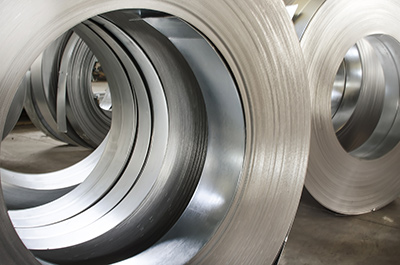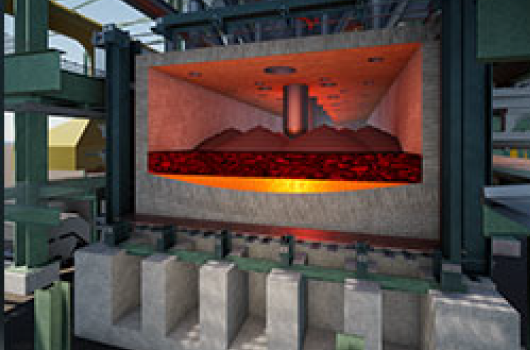Challenges
The steel industry is an essential component of modern society, producing the most widely used metal on earth. With the growing concern over climate change, transitioning to low-carbon production processes is critical for both the steel industry and the planet’s sustainability. According to the Energy and Climate Intelligence Unit over 130 countries have committed to becoming carbon neutral by 2050. They include the 27-nation European Union, which has proposed a “Fit by 55” legislative package aimed at reducing greenhouse gas emission by at least 55 percent by 2030.
Solutions
We are committed to helping our clients navigate the complex and challenging task of decarbonizing the iron and steel industry. With our extensive experience, expertise, and cross-sector capabilities, we offer unique pathways to accelerate the decarbonization of steel production and increase sustainability up and down the value chain. Our experts work closely with steelmakers to identify opportunities for reducing carbon emissions throughout the value chain, from the mining of raw materials to the final production of steel products.
We offer a complete portfolio of services, technologies, and pathways to help support our clients’ decarbonization efforts in the steel industry, including:
Consulting Services
- Green flowsheet development and integration
- Direct reduction
- Hydrogen production
- Electrolytic ironmaking
- Biomass / biocarbon
- Carbon capture, utilization, and storage (CCUS)
- In-depth process optimization and improvement
- Decarbonization strategies and road mapping
- Market assessment, financial modeling, and business case development
- Due diligence reviews
- Support for environmental product declarations (EPDs) and global warming potential (GWP) accounting
- Energy management solutions, including energy audits, energy optimization, and renewable energy integration
Technology
- Proven track record of novel process development, piloting, and scale-up
- Advanced technologies such as Continuous Reduced Iron Steelmaking Process (CRISP and CRISP+), which offers an advanced electric smelting furnace (ESF) technology that reduces emissions in iron and steel production
- Low-emission blast furnace technologies
- Large portfolio of technologies and innovations to improve energy, operation and cost efficiency across the iron and steel value chain
- Renewable power, small modular reactors (SMRs), and energy storage solutions
- Digital and artificial intelligence (AI) applications
- Technology life cycle services and ongoing support
Project Development and Delivery
- Mega-project delivery
- Program management
- Full engineering, procurement, and construction management (EPCM) services
- Concept to feasibility studies
- Business / operation readiness, commissioning, and ramp-up
- Digital project delivery

Forging the Future: Decarbonizing the Steel Industry Blog Series
- SMRs and the future of sustainable steel
- Iron ore: The decarbonization transformation
- Navigating the waves: Steel industry's raw material challenges in the green transition
- Navigating challenges and embracing innovation in the transition to green metal
- Pioneering the path to green steel: Challenges, innovations, and the road ahead
- Beyond the Furnace: Elevating GHG Reporting in the Steel Sector
We are committed to partnering with our clients in the steel industry to achieve significant decarbonization and sustainability gains, and we are continuously exploring and developing innovative solutions to support this goal.



